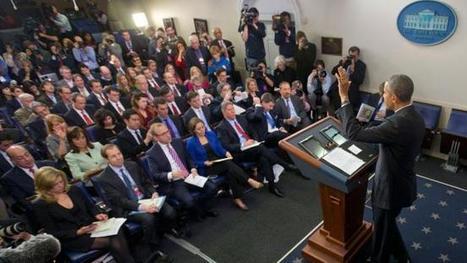 Your new post is loading...
 Your new post is loading...
The cable and consumer electronics industries, energy efficiency groups and the Department of Energy have struck a deal on voluntary energy efficiency standards for set-top boxes that they say will result in "significant energy savings for more than 90 million U.S. homes" while avoiding regulations that cable operators had argued would hurt, not help.
The new standards -- including energy-use monitoring by pay-TV providers -- are predicted to boost set-top box energy efficiency between 10% and 45%, depending on the box, by 2017.
That is expected to translate into more than $1 billion annually, a figure that could grow with the growth of whole-home devices and increasing demand for DVRs and HD set-tops.
The standards agreement applies to all types of boxes from pay-TV providers: cable, satellite and telco. Energy use monitoring will be subject to an independent audit. DOE also reserves the right to test the boxes under the federal Energy Star verification process.
“As Americans increasingly rely on more electronic devices and gadgets, managing energy consumption is both an environmental and economic priority for consumers and industry alike,” Michael Powell, NCTA’s president, said in a statement. “The cable industry is working hard to improve the overall consumer experience and we are proud to develop solutions that will reduce our energy footprint and result in real energy savings for millions of consumers.”
Click headline to read more--
Computer pioneer and codebreaker Alan Turing has been given a posthumous royal pardon.
It addresses his 1952 conviction for homosexuality for which he was punished by being chemically castrated.
The conviction meant he lost his security clearance and had to stop the code-cracking work that had proved vital to the Allies in World War Two.
The pardon was granted under the Royal Prerogative of Mercy after a request by Justice Minister Chris Grayling.
"Dr Alan Turing was an exceptional man with a brilliant mind," said Mr Grayling.
He said the research Turing carried out during the war at Bletchley Park undoubtedly shortened the conflict and saved thousands of lives.
Turing's work helped accelerate Allied efforts to read German Naval messages enciphered with the Enigma machine. He also contributed some more fundamental work on codebreaking that was only released to public scrutiny in April 2012.
"His later life was overshadowed by his conviction for homosexual activity, a sentence we would now consider unjust and discriminatory and which has now been repealed," said Mr Grayling.
"Turing deserves to be remembered and recognised for his fantastic contribution to the war effort and his legacy to science. A pardon from the Queen is a fitting tribute to an exceptional man."
The pardon comes into effect on 24 December.
Turing died in June 1954 from cyanide poisoning and an inquest decided that he had committed suicide. However, biographers, friends and other students of his life dispute the finding and suggest his death was an accident.
Many people have campaigned for years to win a pardon for Turing.
Dr Sue Black, a computer scientist, was one of the key figures in the campaign.
She told the BBC that she hoped all the men convicted under the anti-homosexuality law would now be pardoned.
Click headline to read more--
A former British Petroleum (BP) geologist has warned that the age of cheap oil is long gone, bringing with it the danger of "continuous recession" and increased risk of conflict and hunger.
At a lecture on 'Geohazards' earlier this month as part of the postgraduate Natural Hazards for Insurers course at University College London (UCL), Dr. Richard G. Miller, who worked for BP from 1985 before retiring in 2008, said that official data from the International Energy Agency (IEA), US Energy Information Administration (EIA), International Monetary Fund (IMF), among other sources, showed that conventional oil had most likely peaked around 2008.
Dr. Miller critiqued the official industry line that global reserves will last 53 years at current rates of consumption, pointing out that "peaking is the result of declining production rates, not declining reserves." Despite new discoveries and increasing reliance on unconventional oil and gas, 37 countries are already post-peak, and global oil production is declining at about 4.1% per year, or 3.5 million barrels a day (b/d) per year:
Click headline to read more--
The evad3rs hacking team has released a long-awaited jailbreak for Apple devices running iOS 7, but the release generated a backlash over its bundling of a Chinese app store instead of the more popular Cydia app directory.
The new jailbreak released Sunday is called evasi0n7 and is untethered, which means it's persistent across device reboots. It works on iPhone, iPad and iPod devices running iOS 7.0 through 7.0.4 and allows users to install software that doesn't conform to Apple's strict requirements for admission in the official app store, including extensions and modifications of the iOS operating system and its interface.
Soon after the release, some users started reporting that the jailbreak drops an installer called Taig on their devices. This turned out to be a Chinese app store that is reportedly used to also distribute pirated versions of legitimate apps.
This was followed by widespread speculation about evad3rs' motives for including this app directory in their jailbreak instead of Cydia, prompting the team to publish an open letter to the iOS jailbreaking community with clarifications.
"In the course of developing the iOS 7 jailbreak, we were approached by the company [behind Taig] with an offer of partnership in offering Taig bundled with the jailbreak in China," the team said. "Taig is a Chinese App Store written in Chinese, tailored and, we believe, well suited to meet the needs of users for the Chinese market. Users are not locked into Taig. Cydia can also be installed and Taig removed afterwards. It would be deeply hypocritical to remove choice from the user in the course of jailbreaking."
Evad3rs also apologized for the presence of pirated apps on Taig, which some users had perceived as an endorsement of piracy by the team.
"We are deeply sorry and embarrassed about the piracy that was seen today," the team said. "All of us have spoken out vehemently against piracy in the past. We don't believe it's right for developers to not get paid for their work."
According to the evad3rs team, their contract with Taig specifically requires the Chinese company to remove pirated apps from its store.
Click headline to read more--
A farm by the side of the A1 offers a nursery, business centre and a community broadband service. Ben Barnett reports.
For many of the region’s remote rural areas, the long-heralded roll out of high speed broadband is not a revolution that’s happening on their doorsteps and it’s an issue that’s getting in the way of a thriving rural economy.
Without efficient connection to the global digital highway in this modern age businesses are being handicapped and so farming couple Stephanie, 36, and Mark Pybus, 37, have taken matters into their own hands at Crabtree Hall Farm.
Diversification is something they have embraced in a big way. As well as arable crops grown over 450 acres, a business centre and now a nursery all operate from their farms on either side of the A1 near Northallerton – the other being Broad Close Farm.
With the nursery proving a big hit with former London-based freelance textile designer Stephanie at the helm, Mark is hoping for similar success with a community broadband service to nearby, isolated local villages by way of 4G wireless technology.
“We have a wireless network system so we can send a signal out to the local community, to outlying farms and small villages that otherwise are relying on receiving broadband over traditional copper lines that are increasingly becoming too slow to provide internet based services,” says Mark.
“If you get a dish on the side of your house you can receive our signal. We cover most of the villages between the edge of the Dales and the edge of the Moors.
“With the services over the internet now, people feel they are being left behind, especially over the last few years, and it’s fundamental to business – from cattle registration to Single Farm Payment applications. They are all moving online, or that’s the way the Government wants it.
“We put our bandwidth on wireless and recharge on a monthly basis for the service. We have around 20 customers at the moment but it is starting to pick up and I have it in a few villages now. There is a lot of interest in it.”
Click headline to read more--
Like a macabre marine mystery, the carcasses — many badly deteriorated and tossing about in the surf — first turned up along the coast of New Jersey in June. Soon, droves of them washed up in Virginia, the Carolinas, Georgia and most recently Florida, their winter home.
So far this year, nearly 1,000 bottlenose dolphins — eight times the historical average — have washed up dead along the Eastern Seaboard from New York to Florida, a vast majority of them victims of morbillivirus. Many more are expected to die from the disease in the coming months.
The high death toll from the resurgence of the virus, which killed 700 dolphins in an outbreak 25 years ago, has alarmed marine scientists, who say it remains unclear why the dolphins have succumbed to the disease. The deaths, along with a spate of other unrelated dolphin die-offs along Florida’s east and west coasts, raise new questions about the health of the ocean in this part of the country and what role environmental factors may be playing, scientists said.
“Marine mammals are very good sentinels for ocean and human health, and they really act like the proverbial canaries in a coal mine,” said Dr. Greg Bossart, a veterinary pathologist and senior vice president in charge of animal health at the Georgia Aquarium. “They give us an idea of what’s occurring in the environment.”
Because bottlenose dolphins are top predators, have long life spans and live near shore, Dr. Bossart said, “whatever happens coastally impacts them and potentially us.”
Click headline to read more--
America's newest, most expensive coal-fired power plant is hailed as one of the cleanest on the planet, thanks to government-backed technology that removes carbon dioxide and keeps it out of the atmosphere.
But once the carbon is stripped away, it will be used to do something that is not so green at all.
It will extract oil.
When President Barack Obama first endorsed this "carbon-capture" technology, the idea was that it would fight global warming by sparing the atmosphere from more greenhouse gases. It makes coal plants cleaner by burying deep underground the carbon dioxide that typically is pumped out of smokestacks.
But that green vision proved too expensive and complicated. So the administration accepted a trade-off.
To help the environment, the government allows power companies to sell the carbon dioxide to oil companies, which pump it into old oil fields to force more crude to the surface. A side benefit is that the carbon gets permanently stuck underground.
The program shows the ingenuity of the oil industry, which is using government green-energy money to subsidize oil production. But it also showcases the environmental trade-offs Obama is willing to make, but rarely talks about, in his fight against global warming.
Companies have been injecting carbon dioxide into old oil fields for decades. But the tactic hasn't been seen as a pollution-control strategy until recently.
Obama has spent more than $1 billion on carbon-capture projects tied to oil fields and has pledged billions more for clean coal. Recently, the administration said it wanted to require all new coal-fired power plants to capture carbon dioxide. Four power plants in the U.S. and Canada planning to do so intend to sell their carbon waste for oil recovery.
Just last week, former Energy Secretary Steven Chu announced he was joining the board of a company developing carbon capture technology.
The unlikely marriage of coal burners and oil producers hits a political sweet spot.
Click headline to read more--
Yes, North Carolina is home to Apple’s two recently finished massive (40 MW total) solar panel farms. But the state also has emerged on its own as a major market for solar. According to the latest report from the Solar Energy Industry Association and GTM Research, North Carolina was the third most active solar state in the U.S., trailing only California and Arizona, in the third quarter of 2013.
The state has been expected to have an 80 percent growth in solar farms over 2013. North Carolina had 69 solar system installations in the third quarter, up from 56 in the second quarter.
Click headline to read more--
Conservative groups may have spent up to $1bn a year on the effort to deny science and oppose action on climate change, according to the first extensive study into the anatomy of the anti-climate effort.
The anti-climate effort has been largely underwritten by conservative billionaires, often working through secretive funding networks. They have displaced corporations as the prime supporters of 91 think tanks, advocacy groups and industry associations which have worked to block action on climate change. Such financial support has hardened conservative opposition to climate policy, ultimately dooming any chances of action from Congress to cut greenhouse gas emissions that are warming the planet, the study found.
“I call it the climate-change counter movement,” said the author of the study, Drexel University sociologist Robert Brulle. “It is not just a couple of rogue individuals doing this. This is a large-scale political effort.”
Brulle's study, published on Friday in the journal Climatic Change, offers the most definitive exposure to date of the political and financial forces blocking American action on climate change. Still, there are big gaps.
It was not always possible to separate funds designated strictly for climate-change work from overall budgets, Brulle said. “Since the majority of the organizations are multiple focus organizations, not all of this income was devoted to climate change activities.”
Some of the think tanks on Brulle's list – such as the American Enterprise Institute (AEI) – said they had no institutional position on climate change and did not control the output of their scholars. In addition, Brulle acknowledged that he was unable to uncover the full extent of funding sources to the effort to oppose action on climate change. About three-quarters of the funds were routed through trusts or other mechanisms that assure anonymity to donors – a trend Brulle described as disturbing and a threat to democracy.
Click headline to read more--
AT&T and international service providers China Telecom and Deutsche Telekom's aggressive IPTV buildouts and subscriber acquisition strategies are helping them take away share from cable operators, says Infonetics in its new Pay TV Services and Subscribers report.
"Telco IPTV operators AT&T, China Telecom, and Deutsche Telekom continue to enjoy strong growth in new subscribers and ARPU, showing that competitive providers with differentiated services can successfully steal share away from incumbent cable operators," said Jeff Heynen, principal analyst for broadband access and pay TV at Infonetics Research.
Global IPTV has continued to rise due to an ongoing increase in new subscribers and ARPU, particularly in North America and Western Europe. The research firm forecast that the overall global pay-TV market will see a compound annual growth rate (CAGR) of nearly 5 percent to reach $270 billion.
Click headline to read more--
The growth in mobile broadband usage is so rapid that it cannot be accommodated by new technologies alone -- access to new sources of spectrum is also essential.
It is therefore unsurprising that unused spectrum in certain areas -- so-called white space -- is generating excitement in the industry.
However, this new approach raises key technical and commercial challenges and even risks harming existing mobile services.
Research from Ericsson AB shows that global mobile data traffic grew 80% between the second quarter of 2012 and the third quarter of 2013, which means that the average mobile operator will need about 1600-1800MHz of spectrum by 2020, compared with the 300-500MHz they have today.
Needless to say, this is a substantial amount of new spectrum and represents a critical challenge for the telecom industry. In this light, the promise of unused bands undoubtedly holds appeal. Regulators are inevitably eyeing up all opportunities and white space is seen by many as a prime new resource to mine.
White space is used to define the parts of spectrum that are not used at a particular time and geographic location. Traditionally, the focus has been on TV white space, which consists of unused spectrum in the television broadcasting bands (for example, 470–790MHz in Europe and 470–698MHz in the US).
These bands contain portions of unused spectrum because of the necessary geographical separation between television stations using the same frequency channel and due to unused spectrum by regional television stations.
In principle, these white spaces can be used to provide vital new capacity for broadband services. However, there are a number of issues that could limit the size of the market, the quality and cost of services, as well as potentially negatively impact existing licensed mobile broadband services.
Click headline to read more--
In looking at the way that the internet is performing across the world in 2013, it’s very clear that many countries are hitting their stride and growing in terms of their adoption of broadband. However, that growth comes at a cost: the progression of the internet is signaling the beginning of the end of United States’ place in the top tiers of performance, according to Akamai’s latest State of the Internet report for the second quarter of 2013.
Overall, the number of unique IPv4 addresses has swollen to over 752 million — approximately 18 million more than the first quarter to create a 2 percent increase overall quarter-over-quarter. While it sounds like a small number in the grand scheme of things, Akamai noted that the number of unique IPv4 addresses is slowly dwindling. As major gains continue in developing nations like Tanzania and Mozambique, the IPv4 address pool is quickly becoming exhausted. While the size of the web is getting bigger, internet connections are also becoming faster. The global average connection speed saw a 5.2 percent increase quarter-over-quarter to 3.3 Mbps.
Even more important is the number of countries that have a connection speed of less than 1 Mpbs, which has dwindled to just 11 from 18 in the fourth quarter of 2012. Overall, this indicates that developing companies are increasing their average internet connection speeds, and already-developed nations are improving their infrastructure. The Global average peak connection speed increased just 0.1 percent to 18.9 Mbps, but more countries than ever are passing the 10 Mbps connection speed mark.
Click headline to read more and view charts--
Radio Disney, "home of the hottest kids' music," is teaming up with Ohio's oil and gas industry to teach school kids that pipelines are awesome.
"Rocking In Ohio" is an interactive, game show-like presentation entirely funded by the Ohio Oil and Gas Association and presented jointly with Radio Disney. This "special partnership," as they call it, "highlights the importance of Ohio’s oil and gas industry, and why science, technology, engineering and math (STEM) are crucial in developing energy resources in Ohio," according to the association.
Hosted by a master of ceremonies and three staffers from Cleveland's Radio Disney affiliate WWMK, the hour-long event challenges kids, families and dads to head-to-head games that explain the science behind resource extraction and tout the benefits of products made from fossil fuels. Children run, dance and answer questions, and are given prizes from Disney movies and the Radio Disney brand.
Radio Disney broadcasts online and in more than 35 markets and positions itself as "the unrivaled broadcast radio network for kids and families." Nielsen ranks Cleveland as the nation's 31st-largest radio market.
Disney representatives did not respond to requests for comment in time for publication.
The traveling show is part of an industry-funded outreach program called the Ohio Oil and Gas Energy Education Program (OOGEEP), which partners industry representatives with science teachers in the state. "Rocking In Ohio" was performed at the Ohio State Fair in August, and since then the show has made at least 26 stops at county fairs, science centers and schools.
Click headline to read more--
|
There has been a surge of questions of late regarding IPv6 and whether it can be used to better identify individuals on the Internet. Everyone from marketeers to law enforcement officials seem to hold the same misconception that IPv6 is going to make it possible to expose people in a way that IPv4 does not.
It is true that IPv6 will change addressing on the Internet. Many of us hope it restores the ability to identify an actual network endpoint -- a feature that we lost a number of years ago in IPv4. But some appear to be imagining a future where each machine has its very own address, and that these addresses will be easily traced whenever a person visits a website, plays a game online, or even opens an email. In fact, IPv6 actually has features that are designed to foil these sorts of plans. Also, because of the enormous IPv6 address space, it's rather unlikely that a single machine will have a single IPv6 address.
To make sense of the discussion, we need some history. Click headline to read more--
A business news anchor who was given a Bitcoin certificate on air was promptly robbed after he briefly displayed the digital currency.
Bloomberg TV anchor Matt Miller gave two colleagues, Adam Johnson and Trish Regan, $20 in digital currency in a “12 Days of Bitcoin” segment.
But Johnson unwittingly displayed the digital QR code for his money to the camera, and a viewer was able to use the private key to take his Bitcoin.
Reddit user milkywaymasta said he used his smart phone to scan the QR code that was displayed in high definition for about 10 seconds, allowing him to take the money.
“I took it, it was only $20 worth,” milkywaymasta said. “It was exhilarating nevertheless.”
He promised to return the money if Miller provides a new address so the QR code can’t be swiped again, but the anchor said he could keep the Bitcoin.
“So freaking classic but also a GREAT lesson in bitcoin security!” Miller tweeted. “You can keep the $20 — well earned.”
William Walker and his wife, Mi Chong, wanted to join what's seen as a solar revolution in Hawaii. Shortly after buying their Oahu home earlier this year, they plunked down $35,000 for a rooftop photovoltaic system.
The couple looked forward to joining neighbors who had added panels, to cutting their $250 monthly power bills and to knowing they were helping the environment.
Their plans shifted the day after the PV panels went up in early October. The Walkers learned from a neighbor about a major change in the local utility's solar policy. It led to those 18 panels sitting dormant nearly three months later.
Hawaiian Electric Co., or HECO, in September told solar contractors on Oahu that the island's solar boom is creating problems. On many circuits, the utility said, there's so much solar energy that it poses a threat to the system and a safety issue. Studies are needed on whether grid upgrades are necessary. If they are, residents adding solar must foot the bill. And starting immediately, contractors and residents would need permission to connect most small rooftop systems to the grid.
The new HECO policy was included deep in the text of emails the Walkers' solar contractor had sent, but it escaped their notice before installation. They're now paying $300 per month on a loan for the panels, plus the $250 electric bill.
"It goes from frustration to outrage," William Walker, 33, said of his reaction. "We hear the excuses that HECO provides, that they put out there at least as far as the justification. There's really not a lot of substantiation. My belief is it's purely profit-motivated, to keep people away from PV and keep them on the grid."
HECO officials called it a needed precaution.
Click headline to read more--
Following an intensive procurement process Fibre GarDen and ITS Technology Group (ITS) are delighted to announce that they have signed a Memorandum of Understanding to deliver the well-publicised Fibre To The Premises (FTTP) project in one of the most rural parts of the UK. Both parties have formed a strong and exciting partnership which plans to build, deliver and manage this pioneering community Rural Broadband scheme. Digital Dales (UK) Limited, trading as Fibre GarDen, is a community cooperative which has been working for the past three years towards securing the provision of superfast broadband by delivering FTTP to every property throughout Garsdale and Dentdale in Cumbria. Cheshire based ITS operates on a national and international basis and is one of the UK’s fastest growing suppliers of ‘turn-key’ high-speed broadband solutions and other connectivity. It is also a business service provider offering IT Managed Services and Telecoms Solutions throughout the UK including rural areas. “This is very much a community project and ITS Technology Group are delighted to be working in partnership with such a dedicated and passionate team at Fibre GarDen. We are looking forward to helping all the residents of Garsdale and Dentdale finally gain access to resilient, high-speed and cost effective broadband” stated Lisa Harding Account Director at ITS Technology Group.
Click headline to read more--
“Free broadband for every student home in Nottingham.” These are the words of Callum Hives, the fresh faced businessman and medical student. “Naturally we’re hoping to move past Nottingham pretty quickly, but it’s a great place to start. It’s disruptive, but that’s the idea. We know it’s going to upset a lot of people.”
Callum Hives is a hugely successful part-time CEO of a company that currently turns over around £100,000 a year and looks set to grow significantly. He is also a third year medical student at the University of Nottingham.Starting at the tender age of 15, Callum set up a small, boutique IT support network in his native rural home of Lincolnshire.
Undercutting the existing corporate IT services available in central Lincoln, Callum, along with like-minded school friends, capitalised on the gap in the market by offering affordable one-off services to small businesses. Within a few years, the business had its own office, a solid customer base and several employees.
Callum is setting up a revolutionary new service provider geared to completely usurp the current dominance of Virgin and BT in Nottingham.
Becoming a limited company in 2012, CalCom Enterprises (the main business, imaginatively named after its creator) is now making its first foray into the world of telecoms.Along with a partner, Callum is setting up Snap Broadband, a revolutionary new service provider geared to completely usurp the current dominance of Virgin and BT in Nottingham. Although not technically completely free, after a one off installation payment residents in a house will have free access to their unlimited 10meg internet for as long as they want.
Click headline to read more--
The videos of swaying skyscrapers in Tokyo during the powerful earthquake in 2011 that hit off the coast of Japan are absolutely terrifying. Thanks to strict building codes and the location of the earthquake's epicenter, the skyscrapers were spared.
But if Tokyo were to take a direct hit from a high-magnitude earthquake, the scene could be much worse.
There are many older skyscrapers that don't have earthquake-resistant technology that's required to be built into new skyscrapers.
That's where the innovation comes in. Real estate developer Mitsui Fudosan and Kajima Corp., a construction and engineering company, are teaming up to install six 300-ton steel pendulums, known as "tuned mass dampers," on the roof of the Shinjuku Mitsui building, a 55-story skyscraper built in 1974, instead of tearing it down and building a new tower. The idea is that the massive pendulums will counteract the massive seismic waves during an earthquake and keep the building upright.
As Next City reports, the technology is being used in new buildings but isn't common as a retrofit to older buildings. But it could be extremely effective at dampening the blow of a powerful earthquake with an epicenter near Tokyo, according to Next City:
Click headline to read more--
First Wind, an independent U.S.-based renewable energy company, and the Massachusetts Municipal Wholesale Electric Co. today announced an agreement that will bring clean energy from First Wind's planned Hancock Wind project near Ellsworth, Maine, to 17 Massachusetts municipal utilities.
Under a 25-year, fixed-price contract, First Wind will sell nearly 75 percent of the power and capacity generated at the 51 megawatt (MW) wind farm to MMWEC. Consistent with its nonprofit, Joint Action Agency model, MMWEC will resell the power and capacity at cost to 17 of its member municipal utilities, which are based in the communities of Boylston, Chicopee, Groton, Holden, Holyoke, Ipswich, Mansfield, Marblehead, Paxton, Peabody, Russell, Shrewsbury, Sterling, Templeton, Wakefield, West Boylston and Westfield, according to a news release.
Burlington Electric Department in Vermont is purchasing the remaining energy from the Hancock Wind project.
Click headline to read more--
In 2002, it was reported that British Prime Minister Tony Blair had told a friend an amusing tale about our man George W. Bush. It seems that the two of them and French President Jacques Chirac had gotten into an economics discussion, after which George supposedly confided to Tony that he was decidedly unimpressed with Jacques' views: "The problem with the French," Bush scoffed, "is that they don't have a word for 'entrepreneur.'"
W's head has always been a no-fly-zone for factual reality. However, what would boggle his mind even more than the fact that we Americans filched that word from the French, is the reality that government is not quite the entrepreneur-devouring ogre (Mon dieu! George, another French word!) that Bush's cartoonish dogma paints it to be. Actually, government-at-its-best can be an entrepreneur's buddy. One surprising place to see this buddyship at work is in one of the most mundane of government offices: Procurement (i.e., the Department of Buying Stuff).
Where does your mayor, school board, governor, or any other "public shopper" go to purchase fixtures, food, furniture, ferns, and whatnot? Where I live, various agencies have Buy Austin, Buy Texas, Buy American, Buy Green, Buy Sweatshop-Free, and other targeted policies that apply our tax dollars to our values. This sensible idea has swept across the country, most likely including where you live, and these agency purchases add up to a big financial boost for start-ups, independents, women-owned, and other homegrown enterprises. Rather than buying everything from Walmart or China (excuse the redundancy there)--thus shipping truckloads and boatloads of cash out of our communities--plow that public money back into the home turf for grassroots economic growth and the flowering of local jobs.
Imagine the uproar if President Obama and Congress tried to pass a bill to outlaw such "preferential procurement" policies, summarily cancelling our democratic right to decide where to make public purchases. I'd get pretty PO'd, wouldn't you? And what if they also proposed that foreign corporations in Brunei, New Zealand, Vietnam, and other nations must be given the right to make the sale on any and all products purchased with our tax dollars? That'd set my hair on fire!
The American people would never stand for this brazen affront to our sovereignty, so I can assure you that Obama and Congress will definitely NOT be proposing any such thing. Not directly, that is.
Instead, their hope is to tiptoe it around us. The nullification of our people's right to direct expenditures of our own tax dollars is but one of the horror stories being quietly packed into a political-and-economic bombshell benignly labeled TPP --the Trans-Pacific Partnership.
Click headline to read more--
Senior Israeli officials have called on the US to stop spying on Israel, after revelations that the National Security Agency had intercepted emails from the offices of the country's former leaders.
It is the first time Israeli officials have expressed anger since details of US spying on Israel began to trickle out in documents leaked by the former NSA contractor Edward Snowden. The scandal has spurred renewed calls for the release of Jonathan Pollard, a former US intelligence analyst who has been imprisoned in the US for nearly three decades for spying for Israel.
"This thing is not legitimate," the Israeli intelligence minister, Yuval Steinitz, told Israel Radio. He called for both countries to enter an agreement regarding espionage.
"It's quite embarrassing between countries who are allies," the tourism minister, Uzi Landau, said. "It's this moment more than any other moment that Jonathan Pollard [should] be released."
Documents leaked by Snowden – and published last week in the Guardian, Der Spiegel and the New York Times – revealed that British agents from GCHQ worked with the NSA from 2008-11 to target email addresses belonging to the offices of then Israeli prime minister, Ehud Olmert, and the defence minister, Ehud Barak.
Amir Dan, spokesman for Olmert, played down the revelations. He said the email address targeted was meant for queries from the public and was not used for sensitive communications. "There is no chance there was a security or intelligence breach caused from this email address," he said.
Barak could not immediately be reached for comment.
Click headline to read more--
The Associated Chambers of Commerce and Industry of India has strongly urged the government to implement uniform spectrum usage charge (SUC) before the upcoming auctions in the interest of all stakeholders such as consumers, economy, government and the industry. This is in light of the failure of the last two spectrum auctions on account of high reserve prices and an escalated SUC regime.
"None of the spectrum reforms being introduced by the government like spectrum sharing, spectrum trading, revised mergers and acquisitions (M&A) guidelines will take off until there is a uniform SUC regime as the operators will be discouraged to purchase spectrum if the SUC continues at the current escalated regime," said ASSOCHAM at a press conference jointly addressed by T.V. Ramachandran, chair, National Telecom Council of ASSOCHAM and resident director, Regulatory Affairs at Vodafone India along with D.S. Rawat, secretary general.
The Telecom Regulatory Authority of India (TRAI) has emphasized on the principle of uniformity in respect of spectrum usage charges, but has left the decision on the exact rate to the government, it added. "If the government believes that three per cent SUC will result in a loss, it can set the uniform SUC at a rate that will give the government revenue neutrality."
A 167.50MHz of spectrum in 1,800MHz band that remained unsold in the November 2012 auctions caused a loss to the government exchequer to the tune of Rs 1,744 crore per year (annual installment with repayment term for 20 years at 10 percent interest) as per today's reserve prices.
"This loss due to non-implementation of the uniform SUC is almost seven times than the Rs 250 crore annual loss estimated by the government on implementing the uniform SUC," highlighted ASSOCHAM. "A uniform SUC apart from bringing additional revenues to the government will also result in the most efficient and optimal utilization of spectrum."
The ASSOCHAM also pointed out that the government has not considered the issue of arbitrage that has been brought out by TRAI.
Click headline to read more--
The shortage of physicians in rural and remote areas in tandem with the continuous development of telecommunication are providing the opportunity for telemedicine to increase its services to millions of patients, according to a new report from Research and Markets.
This widespread deployment of services will continue at a rapid pace for the foreseeable future; the increase in telemedicine applications are increasing due to the high prevalence of chronic diseases, consistent need for improved quality services and rising elderly population across countries which demand telemedicine to deliver improved products with higher patient satisfaction.
As a result, the global telemedicine market, which stood at $14.2 billion in 2012, is expected to grow at a compound annual growth rate (CAGR) of 18.5 percent during 2012-2018, according to the report, “Global Telemedicine Market Outlook to 2018.”
Click headline to read more and access hot link--
Britain’s largest internet provider, BT, is offering its customers the option to block sex education, “gay and lesbian lifestyle” websites, and non-adult content about sexual health, as UK Prime Minister David Cameron’s sweeping plans for a filtered internet come into effect.
In an article about state interference with the internet, GigaOm’s Jeff John Roberts made the editorial decision to mention the UK and North Korea, together, in the same headline. While there is a certain level of caustic hyperbole in doing so, advocates for web freedom have been highlighting the slippery slope Cameron’s government has been careening down for years. Now, one paragraph, hidden away on the customer care page for Britain’s biggest internet provider, brings questions of censorship and the potential harm it can do sharply into focus.
British Telecom’s customer care page, titled “Blocking categories on Parental control”, details a list of topics customers can choose to filter. Tucked away at the bottom, after the expected violence, hate, pornography, and drugs options, is “Sex Education”.
It reads: “Sex Education will block sites where the main purpose is to provide information on subjects such as respect for a partner, abortion, gay and lesbian lifestyle, contraceptives, sexually transmitted diseases and pregnancy.”
While sex education pages will not be blocked by default, the mere existence of it as an option sends a deeply worrying message to BT’s customers.
Click headline to read more--
|



 Your new post is loading...
Your new post is loading...





























